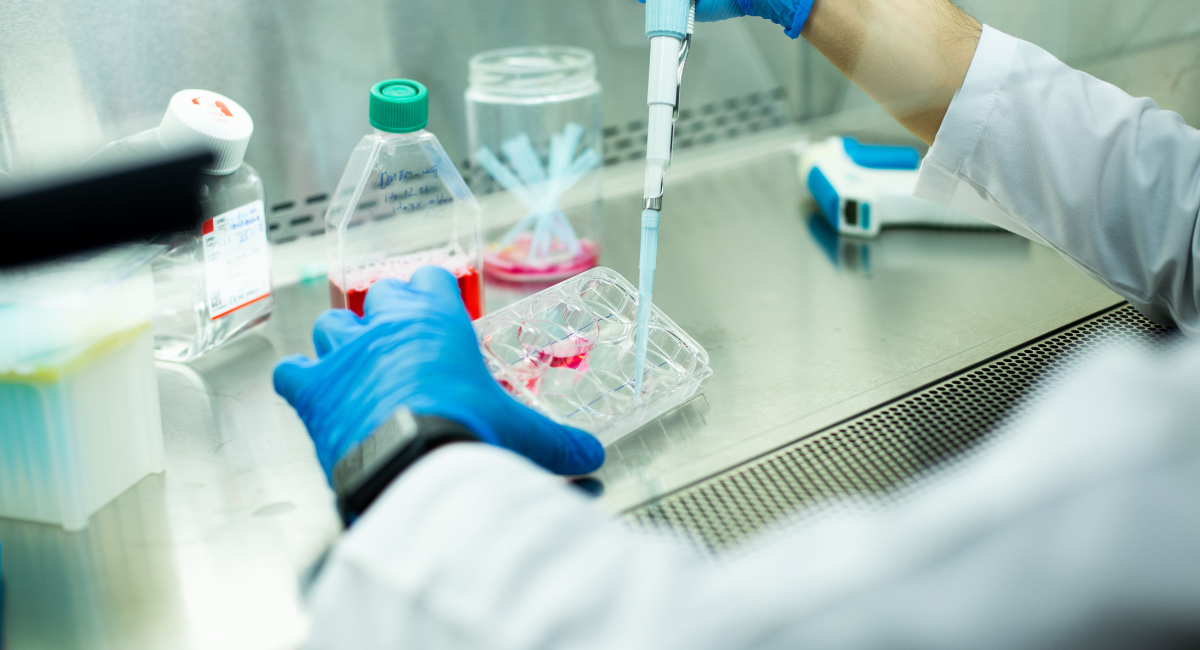
The Science Behind Stem Cell Therapy
Regenerative medicine is transforming the way we approach healing, offering an alternative to surgeries and long-term medication use. One of the most exciting advancements in this field is stem cell therapy, a cutting-edge treatment designed to support the body’s natural ability to repair and regenerate tissues.
But how does it actually work? What does the science say? And what ethical considerations come into play? In this post, we’ll break down the fundamentals of stem cell therapy, how it helps with conditions like joint degeneration and autoimmune diseases, and why it might be the right choice for you.
What Is Stem Cell Therapy and How Does It Work?
Many people assume that stem cell therapy involves injecting stem cells directly into the body, where they then transform into new tissue. However, the process is much more sophisticated. Instead of simply replacing damaged cells, the injected materials—such as Wharton’s jelly-derived products, amniotic fluid, and exosomes—act as powerful signaling molecules. These signals activate the body’s own stem cells, directing them to areas of injury and inflammation to initiate tissue repair.
This process works through three key mechanisms:
- Tissue Regeneration: The injected products encourage the body’s own stem cells to repair damaged tissues, such as cartilage, ligaments, tendons, and joints.
- Inflammation Modulation: These treatments help regulate cytokines and other immune factors, reducing excessive inflammation that contributes to chronic pain and tissue breakdown.
- Immune System Regulation: For conditions like autoimmune diseases, stem cell therapy can help balance immune responses, potentially improving conditions like lupus and rheumatoid arthritis.
What Are the Best Sources of Stem Cells for Therapy?
At Nourish House Calls, we prioritize safety, efficacy, and ethical sourcing. That’s why we use Wharton’s jelly-derived products and amniotic fluid collected from healthy, full-term C-section births. These products, which would otherwise be discarded, contain highly potent regenerative compounds without the need for invasive procedures.
Some clinics extract stem cells from adipose (fat) tissue or bone marrow, but these methods require surgical harvesting and can introduce risks such as contamination or loss of cell potency. Nourish has chosen not to use these sources due to their higher risk profile and variability in effectiveness.
Ethical Considerations in Stem Cell Therapy
A common concern regarding stem cell therapy is where these products come from. In the past, some regenerative products were sourced from aborted fetal tissue, raising significant ethical concerns. However, the Wharton’s jelly and amniotic fluid used at Nourish House Calls come exclusively from live, healthy births.
These materials are collected only after medically necessary C-sections, ensuring that they are ethically sourced and do not contribute to elective medical procedures. For those who value transparency in their healthcare choices, this distinction is critical.
Conditions That May Benefit from Stem Cell Therapy
1. Orthopedic Injuries and Joint Degeneration
One of the most well-documented uses of stem cell therapy is for joint and musculoskeletal conditions. Patients with osteoarthritis, meniscus tears, ligament injuries, and cartilage damage may benefit from regenerative injections, helping to restore mobility and reduce pain without surgery.
2. Autoimmune Disorders
Because stem cell therapy modulates immune responses, researchers are exploring its potential for treating autoimmune diseases like lupus, rheumatoid arthritis, and multiple sclerosis. IV infusions of purified amniotic fluid may help balance immune function, reducing flare-ups and inflammation.
3. Neurological Conditions
While not a treatment we offer at Nourish House Calls, researchers are investigating stem cell therapy for spinal cord injuries, neurodegenerative diseases, and stroke recovery. The potential for brain and nervous system regeneration is an exciting frontier in regenerative medicine.
Is Stem Cell Therapy Safe?
One of the key advantages of using Wharton’s jelly-derived stem cell products is their immune privilege—meaning the body does not recognize them as foreign and does not reject them. This makes these treatments extremely safe, with minimal risk of complications compared to other interventions like surgeries or long-term opioid use.
To date, research and clinical experience indicate that serious adverse effects are rare, making regenerative therapies a promising option for those seeking alternatives to conventional treatments.
Take the First Step Toward Healing
If you’re struggling with joint pain, injury, or an inflammatory condition, stem cell therapy may be an option worth exploring. At Nourish House Calls, we specialize in regenerative medicine, helping patients avoid unnecessary surgeries and medications by activating their body’s natural ability to heal.
Book a free 15-minute discovery call today to learn if regenerative therapy is right for you:
Schedule Your Consultation
Frequently Asked Questions (FAQs)
Yes, but not in the way many people think. Instead of directly replacing damaged tissue, stem cell therapy activates your body’s own regenerative mechanisms, signaling stem cells and healing factors to repair injured areas.
We use Wharton’s jelly-derived stem cell products and amniotic fluid sourced from full-term, healthy C-section births. These tissues, which would otherwise be discarded, contain potent healing compounds to promote regeneration.
Most patients find the procedure minimally invasive and well-tolerated. Injections are often no more uncomfortable than a typical joint injection or IV therapy session.
Results vary by individual and condition, but many patients notice improvements in pain, mobility, and function within a few weeks to months. Full regeneration effects can continue for six months or longer as the body rebuilds tissue.
While stem cell treatments are being actively researched, they are not yet FDA-approved for all medical conditions. However, the use of Wharton’s jelly-derived and amniotic fluid products is legal when performed under proper guidelines.